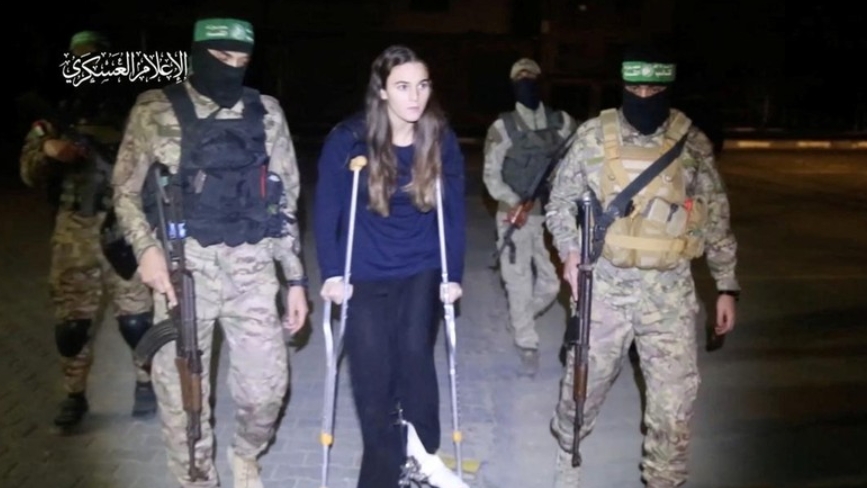Gaza, MINA – The Palestinian Resistance movement, Hamas, confirmed that it is willing to engage in a potential prisoner exchange with Israel, agreeing to a list of 34 captives provided by the Israeli government, Palestine Chronicle reported.
However, the group has made it clear that it will only proceed with the exchange if certain conditions are met, including an Israeli withdrawal from Gaza, a ceasefire, and the release of Palestinian prisoners.
A senior Hamas official told Reuters that while the group has shown some flexibility by considering Israel’s list of captives, Israel has yet to respond to Hamas’s demands for halting its assault on Gaza. According to the official, any agreement that fails to ensure these key demands will be rejected.
Hamas has stated that these terms—an Israeli withdrawal and a ceasefire—are non-negotiable for bringing an end to the ongoing violence.
Also Read: UNRWA: 90% of Gaza’s Population Depends on Humanitarian Aid Amid Israeli Restrictions
The official also emphasized Hamas’ commitment to securing the release of Palestinian prisoners and improving the dire humanitarian conditions in Gaza. However, they warned that Israel’s refusal to address these terms could lead to further escalation and prolong the suffering of the Palestinian people.
Israeli daily Yedioth Ahronoth reported today that Israeli officials are advocating for a limited, one-time prisoner exchange, which would involve the release of a select number of Israeli captives.
Israeli Prime Minister Benjamin Netanyahu’s government has reportedly been working on a deal to secure this limited exchange, despite significant opposition from factions within the Israeli political establishment.
The newspaper also revealed that Mossad chief David Barnea will travel to Doha tomorrow to engage in critical talks, accompanied by Brett McGurk, US President Joe Biden’s outgoing Middle East envoy.
Also Read: Two Million Israelis Face Looming Mental Health Crisis Amid Gaza War
The mediation efforts are considered to be at a crucial juncture, particularly after a recent video released by Hamas showing Israeli captive Liri Albagh, who criticized the Israeli government for its failure to secure the release of prisoners.
Despite these diplomatic moves, Yedioth Ahronoth noted that the Israeli government is reluctant to discuss any further phases of a peace deal until the first phase—concerning the immediate exchange of prisoners—has been resolved.
Netanyahu’s strategy, according to reports, aims to appease far-right coalition partners while stalling progress on the larger issues of withdrawal and ceasefire.
A senior Israeli military source disclosed that the current situation is far from ideal. They noted that, while a small exchange deal could be reached in the short term, it may not lead to a larger breakthrough in negotiations, and might even diminish future bargaining power for Hamas.
Also Read: US-Backed Gaza Aid Group Ends Mission Amid Controversy Over Delivery and Safety
“We have to recognize that any deal at this stage would not be comprehensive, and it risks prolonging the conflict,” the source said. (T/RE1/P2)
Mi’raj News Agency (MINA)
Also Read: Israel Allows Only One-Third of Agreed Aid Trucks Into Gaza



















![Israeli tanks and APC’s gather by the Israeli – Lebanese border. Amid Israel’s escalating campaign against Hezbollah in Lebanon on September 30, 2024. [Erik Marmor/Getty Images]](https://en.minanews.net/wp-content/uploads/2024/10/IMG_20241001_203226-300x197.jpg)














 Mina Indonesia
Mina Indonesia Mina Arabic
Mina Arabic